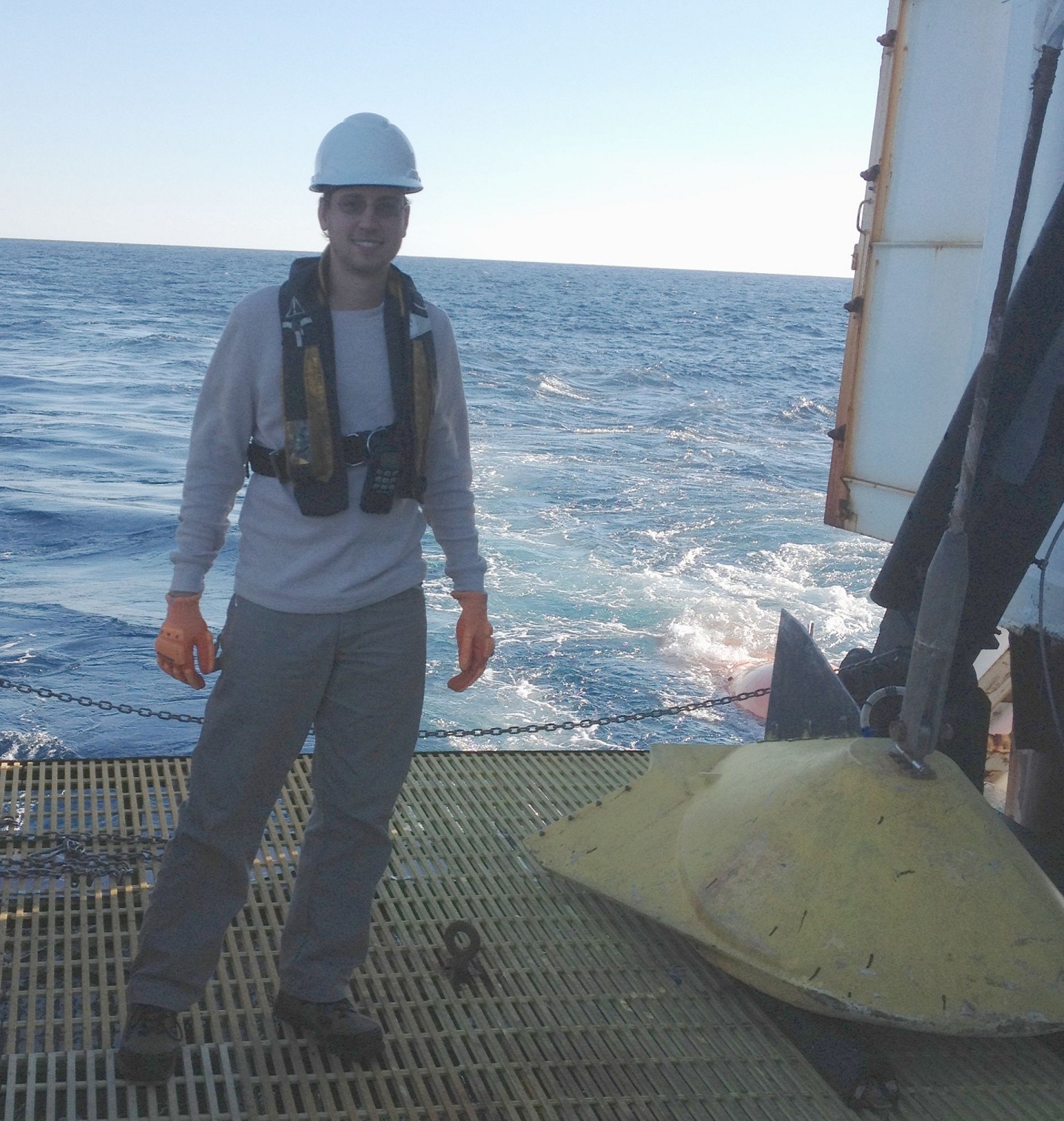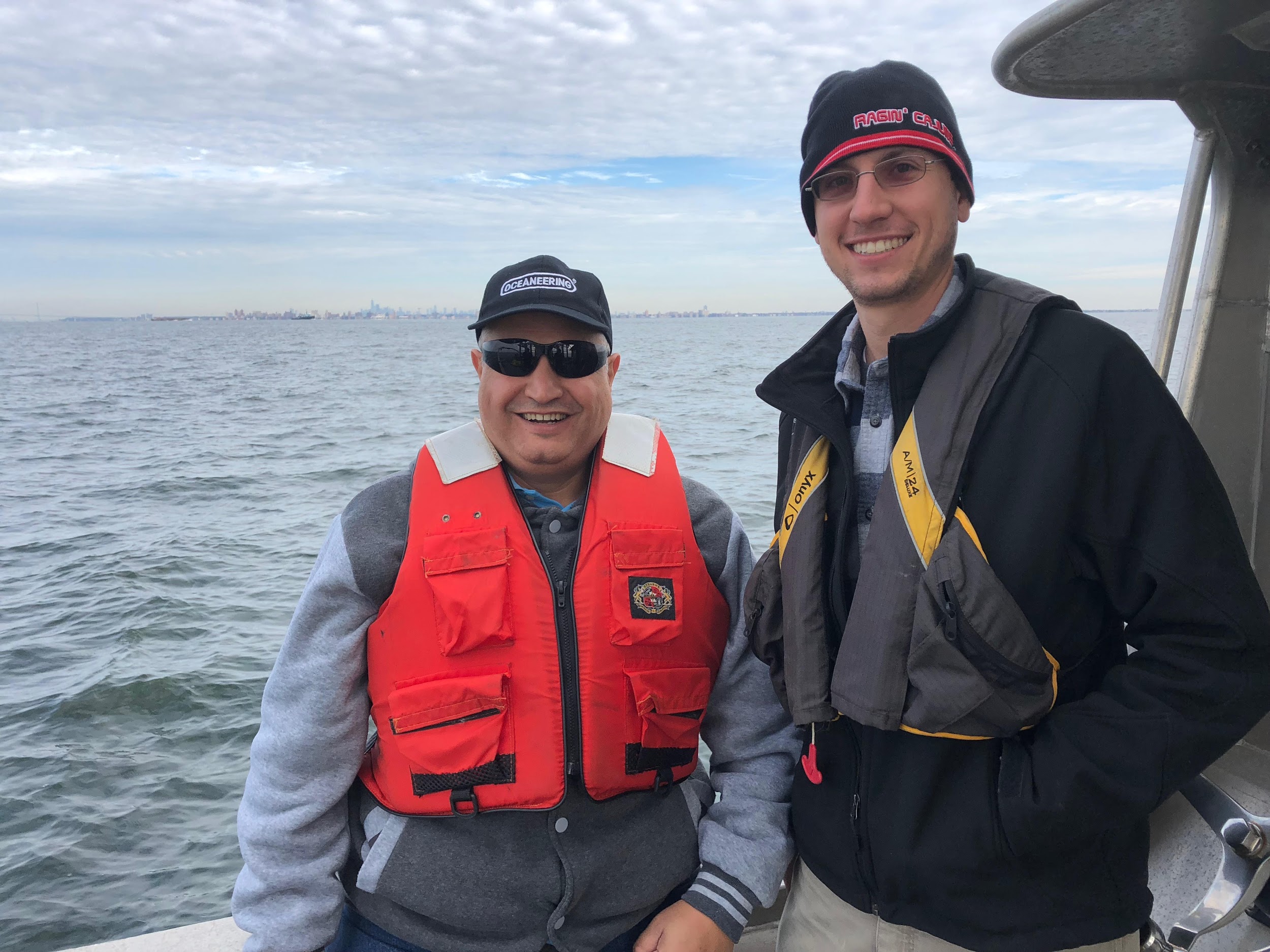Following is the energy story of Eric Fischer of Lafayette, Louisiana:
What is your name, title/occupation, and where do you live?
Eric Fischer, Project Manager / Geoscientist. I live in Lafayette, LA.
Can you tell us a little about what your company does and your role?
Oceaneering started as a commercial diving company and evolved to become the leader in robotics and technologies serving the oil and gas, aerospace, materials handling and entertainment (roller coasters) industries. We offer a range of products and services to support offshore operations worldwide with a special focus on deepwater. As a project manager, I have been responsible for two of our AUVs (Autonomous Underwater Vehicles) that have completed projects in Africa, the Mediterranean, and U.S. Gulf of Mexico and Atlantic waters. In some cases as deep as 3,000 m (10,000 ft). As a geoscientist, I go offshore to help lead survey operations on a variety of vessels for projects in the research, oil and gas and renewables industries.

How long have you worked in the offshore energy industry?
I have worked for 11 years in the industry, the last five of which have been at Oceaneering.
What originally attracted you to the offshore energy industry, and what has kept you in the industry?
My degree is in Geology, so that obviously ties me to the energy industry. But, I worked for a survey supply company in college and so that is when I became interested in the merging of those two items, which is geophysical surveying.
What types of job opportunities does your company offer? What skills make potential employees a good fit with the team?
Any oilfield group must be a team to be successful. We need people who know electrical/mechanical skills, IT skills, in addition to any project specific technical skills. And of course leadership skills are critical to a safe and efficient work environment.
How much of a priority is worker safety and environmental stewardship for your company? Can you give an example of safety or environmental practices within your company?
This is a capstone of all companies in the industry. No job, even if it is profitable, can be considered successful if a person or the environment were harmed. Oceaneering’s Stop Work Authority is a major part of this idea, which every person, from rookie to supervisor, has at all times. This obligation to our safety, which each employee enjoys, is respected throughout multi-disciplinary teams; and companies and contractors alike utilize this. This topic is always covered at every safety meeting.
How has the industry changed in the last five years? Are there any new technologies or practices that you wish had previously existed?
Automation and robotics are now at the forefront of the national conversation, but we we have been doing this professionally for decades. Our commercial AUV operations are now 18 years old, for example. I hope more young people join the industry and contribute to the many opportunities.

What does your family do for fun when you are not working?
We have just become involved in scouting with our daughter, so we are excited about camping. I am an Eagle Scout, so I spent a lot of time camping growing up. I am looking forward to sharing that with my family.
People who do not live along the Gulf Coast might not know about the fishing, beaches and other outdoor draws to the region. How much are the outdoors part of the way of life for energy workers along the Gulf of Mexico?
Hunting and fishing are very popular here, with many avid outdoorsman and women also in the energy industry. One great thing is that many people have taken their safety training from work to the field, making many people safer during their recreational time.
Finally, what is the one thing you would like to tell Americans about life alongside America’s offshore energy production?
There is a great sense of camaraderie and pride that members of our industry share. The work can be very complex, with difficult hours, and even sometimes difficult people, but the sense of accomplishment at the completion of a job can be great. Most people work 12-hour long shifts offshore, but many days an eight-hour day at the office can seem longer. Plus, the sunsets and views on the water are always grand.

